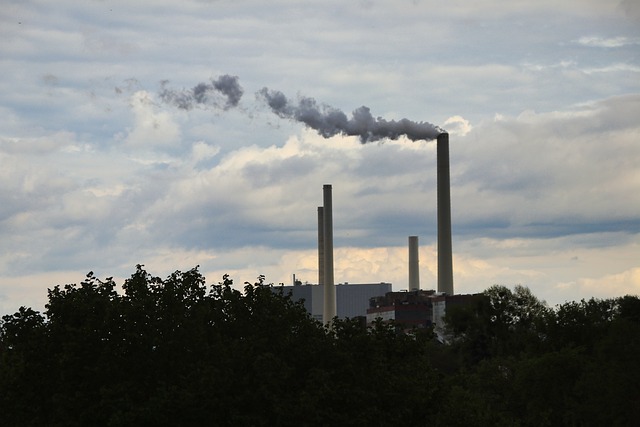Air pollution can have a wide range of adverse health effects, including contributing to or exacerbating various diseases. Here are some of the diseases and health conditions associated with air pollution:
- Respiratory Conditions: a. Asthma: Air pollution can trigger asthma attacks and worsen symptoms in individuals with asthma. b. Chronic Obstructive Pulmonary Disease (COPD): Long-term exposure to air pollution can lead to the development and progression of COPD. c. Bronchitis: Air pollution can irritate the bronchial tubes, leading to acute or chronic bronchitis.
- Cardiovascular Conditions: a. Heart Disease: Air pollution is linked to an increased risk of heart attacks and other cardiovascular diseases. b. Hypertension (High Blood Pressure): Long-term exposure to air pollution has been associated with elevated blood pressure.
- Lung Cancer: Prolonged exposure to certain air pollutants, like fine particulate matter (PM2.5) and some airborne carcinogens, can increase the risk of lung cancer.
- Stroke: Air pollution has been linked to an increased risk of stroke, as it can contribute to the development of blood clots and inflammation in the arteries.
- Allergies: Airborne allergens, such as pollen and mold spores, can become more abundant and potent in the presence of air pollution, potentially exacerbating allergy symptoms.
- Infections: Air pollution can weaken the immune system, making individuals more susceptible to respiratory infections and diseases like pneumonia.
- Birth Defects: Some air pollutants, particularly during pregnancy, have been associated with an increased risk of birth defects in children.
- Premature Death: Long-term exposure to high levels of air pollution can lead to premature mortality due to the increased risk of various diseases, particularly among vulnerable populations.
- Cognitive Impairment: Emerging research suggests that air pollution may be linked to cognitive decline and an increased risk of neurodegenerative diseases like Alzheimer's and dementia.
- Reduced Lung Function: Growing up in areas with high air pollution levels can lead to impaired lung development in children.
It's important to note that the specific health effects of air pollution can vary based on the type and concentration of pollutants, an individual's susceptibility, and the duration of exposure. Efforts to reduce air pollution, improve air quality, and promote public health can help mitigate these risks. Individuals can also take steps to protect themselves, such as staying indoors during poor air quality days and using air purifiers.
Air pollution levels can vary significantly from one country to another, and it's often measured by concentrations of various air pollutants, such as fine particulate matter (PM2.5), ground-level ozone (O3), sulfur dioxide (SO2), nitrogen dioxide (NO2), and carbon monoxide (CO). The World Health Organization (WHO) and other organizations track air quality globally. As of my last knowledge update in September 2021, here are some countries known for having significant air pollution issues:
- India: Several Indian cities, including Delhi, have consistently ranked among the most polluted in the world. High levels of PM2.5 and other pollutants are a major concern.
- China: While China has made efforts to address air pollution in recent years, it still faces challenges, especially in cities with high population and industrial activity.
- Pakistan: Major cities like Lahore and Karachi in Pakistan have faced severe air pollution issues, primarily due to industrial emissions, vehicular pollution, and agricultural burning.
- Bangladesh: Dhaka, the capital of Bangladesh, has often been cited as one of the most polluted cities globally, with high levels of PM2.5.
- Mongolia: Ulaanbaatar, the capital of Mongolia, experiences severe air pollution during the winter due to coal-burning for heating.
- Iran: Tehran and other Iranian cities have faced air quality issues, particularly during the winter months, when temperature inversions trap pollutants.
- Indonesia: Air pollution, primarily driven by agricultural fires and deforestation, has been a concern in parts of Indonesia, such as Sumatra and Kalimantan.
- Saudi Arabia: Some cities in Saudi Arabia, including Riyadh and Jeddah, have struggled with air quality issues due to factors like industrial emissions and dust storms.
- Egypt: Air pollution is a significant issue in cities like Cairo and Alexandria, where vehicular emissions and industrial pollution are common.
- Nigeria: Lagos, Nigeria's largest city, has experienced air pollution problems due to rapid urbanization, industrial activities, and vehicular emissions.
Please note that air quality can change over time due to various factors, including government policies, industrial regulations, and weather conditions. Efforts to combat air pollution are ongoing in many of these countries, and rankings may change as a result of these efforts. It's essential to refer to the most recent air quality data and reports to get an up-to-date picture of the air pollution situation in different regions.
Top Stories, Trending, Viral, Jobs, Information & Entertainment Telegram Channel Click to Join Infimor
